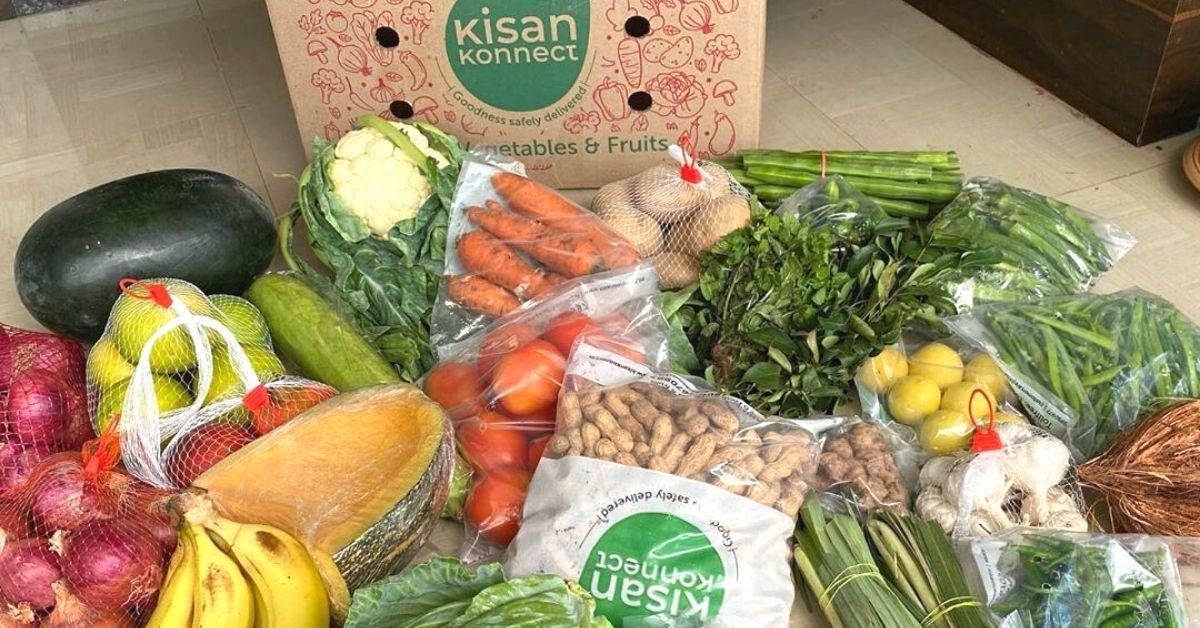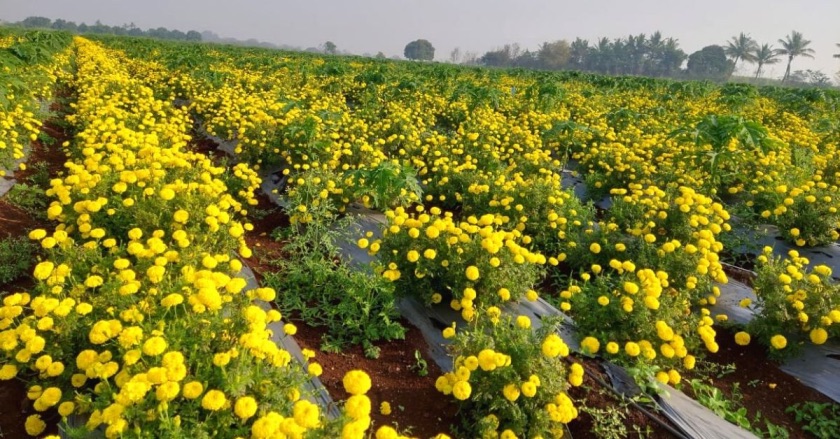The sudden COVID-19 lockdown announced in March 2020 left everyone stranded, put life at a pause and disrupted routine business. The situation of farmers in Ahmednagar of Maharashtra was no different. The farmers selling vegetables and fruits to Mumbai, Pune and other neighbouring cities suddenly found themselves with a massive stock of vegetables and no market to sell them.
However, the crisis also brought an opportunity for farmers to experiment with new ideas and find a solution that would work in their favour. The problem demanded individual farmers who were facing the same difficulties to come together. A dozen farmers in the region connected through a WhatsApp group to come up with a plan. In April, they entered social media to establish connections with direct consumers instead of relying on the traditional middlemen and buyers.
Almost a year later, in 2021, the group has swelled to a community of 480 farmers, forming a farmer produce company ‘KisanKonnect’ and engaging directly with buyers to sell one lakh boxes of vegetables and establishing a Rs 6.6 crore entity.
Journey from 11 farmers to 480

Manish More, a 39-year-old farmer from Junnar and a founding member of the group, says, “The farmers from the region were already in touch with each other on social media and contemplating solutions. Once the movement for essential goods opened, 11 farmers came together in an attempt to create a digital market.”
Manish holds a degree in, B.Sc in agriculture and business management and had worked closely with retail companies such as Big Bazaar and Reliance. “I had good knowledge about their requirements from farmers. And I also knew about their policies, which did not always favour farmers. Additionally, the food grower may not always be able to deliver the complete list of vegetables demanded by corporates,” he tells The Better India.
Manish had already quit his job and started practising farming in 2008. “I tried to work with the companies, but it never succeeded,” he adds. His understanding of the market helped him see the gaps at both ends. To cut out the retailers, he suggested other farmers directly reach consumers.
“In April, we started reaching out to residential societies in Mumbai and Pune through our networks. Slowly, the word spread, and we reached 100 residential societies – directly supplying vegetable baskets each week,” Manish says.
Explaining further, he adds the baskets ranged between 4 kilos and 12 kilos. “The vegetable baskets were offered with various sizes having a variety of vegetables and differing quantities. We later introduced a fruit basket and an immunity basket – that had a collection of vegetables that help improve the body’s immune system,” he says, adding, “We also started customising baskets as demanded by customers.”
Delivering fresh vegetables within 24 hours

Shrikant Dhokchawale, another MBA farmer from Rahata in Ahmednagar district, says the direct selling concept eliminated go-betweens. “We innovated the delivery model by making safer packaging of vegetables and fruits and providing hygienic boxes in less than 24 hours at the buyers’ doorsteps,” he says.
Isha Chaughule from Vile Parle says, “I found it difficult to buy vegetable supplies during the initial months of lockdown. A friend of mine suggested that I try the farmer company, and for the past six months, I have become a regular customer.”
The homemaker says that all the orders made on the website get delivered within the designated time and are hygienically packed. “My mother-in-law is 77-year-old, and I have to take special care in terms of the safety and health of the family. The company has not disappointed me. The vegetables are fresh and healthy compared to ones available at the local market,” she adds.
In the first month alone, the farmers received a massive response earning them a turnover of Rs 40 lakh. Looking at the success, many farmers started joining them.
“For the first six months, we operated through WhatsApp groups. Later we found it difficult to manage the customers on WhatsApp and reached out to friends from the IT sector to create a website to accept orders. ,” Shrikant says.

He adds the self-created independent, no-middlemen, farm-to-doorsteps supply chain owned by the farmers makes it distinct and gives a new identity to them. “The incomes have also increased as the trade happens between the producer and buyer alone,” he says.
At present, the company seeks orders from buyers from a dedicated mobile app, website and customer service centre. The service centre has English speaking staff earlier working at call centres in metro cities. It also hires the fleet of vehicles it needs for logistics purposes from the local vendors.
Shrikant says that the initiative is a true example of how farmers can come together, stand for the community in crisis and become resilient.
(Edited by Vinayak Hegde)
No comments:
Post a Comment